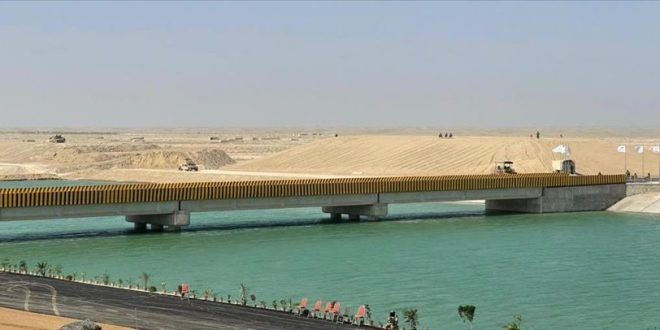AT News
KABUL – Tensions are rising as Uzbekistan pursues mediation with Afghanistan over the Qosh Tepa canal project, which has raised concerns about water security in the region. Officials in Uzbekistan have announced that a government delegation will travel to Afghanistan in the coming months to engage in negotiations regarding this ambitious project.
This announcement comes in the wake of reports that the Taliban government is preparing to initiate the second phase of the Qosh Tepa canal, which Afghan authorities have presented as a means to secure the country’s agricultural needs.
During a recent ceremony marking the beginning of this second phase, the deputy foreign minister in the Taliban government, Sher Mohammad Abbas Stanikzai, attempted to alleviate concerns of neighboring nations about the project’s impact on the Amu Darya River. He expressed the government’s readiness to engage in diplomatic discussions with concerned neighbors.
However, this conciliatory tone was met with a note of defiance from Acting Defence Minister Mawlawi Mohammad Yaqoob Mujahid, who declared that the Taliban’s armed forces would vigorously defend the project against any aggressive interference.
Kabul’s objective for the Qosh Tepa canal is to transform 550,000 hectares of currently arid farmland through irrigation, potentially bringing significant agricultural benefits.
Uzbek President Shavkat Mirziyoyev has been a vocal advocate for regional cooperation on this issue, urging Central Asian leaders to unite in addressing the challenges posed by the canal. He stressed the need to form a joint working group to comprehensively study the construction of the Qosh Tepa Canal and its potential effects on the water balance in the Amu Darya River.
However, the Taliban government’s rapid progress with the project suggests a willingness to bypass further feasibility studies, which has raised concerns among experts. The construction methods employed appear rudimentary, heightening the risk of water losses.
The consequences of water withdrawal in Afghanistan are of particular concern for Uzbekistan, as it may result in a shortage of essential water resources for irrigating crucial cotton plantations in the Bukhara, Khorezm regions, and Karakalpakstan. Cotton is a vital agricultural crop in Uzbekistan, contributing significantly to its GDP and sustaining the livelihoods of a significant portion of its population. The reliance on irrigation is integral to the cultivation of major crops in the country.
The Qosh Tepa canal project remains a subject of regional debate, and Uzbekistan’s efforts to mediate reflect the urgency of addressing the potential ramifications for water security and economic stability in the area.
 Afghanistan Times
Afghanistan Times




